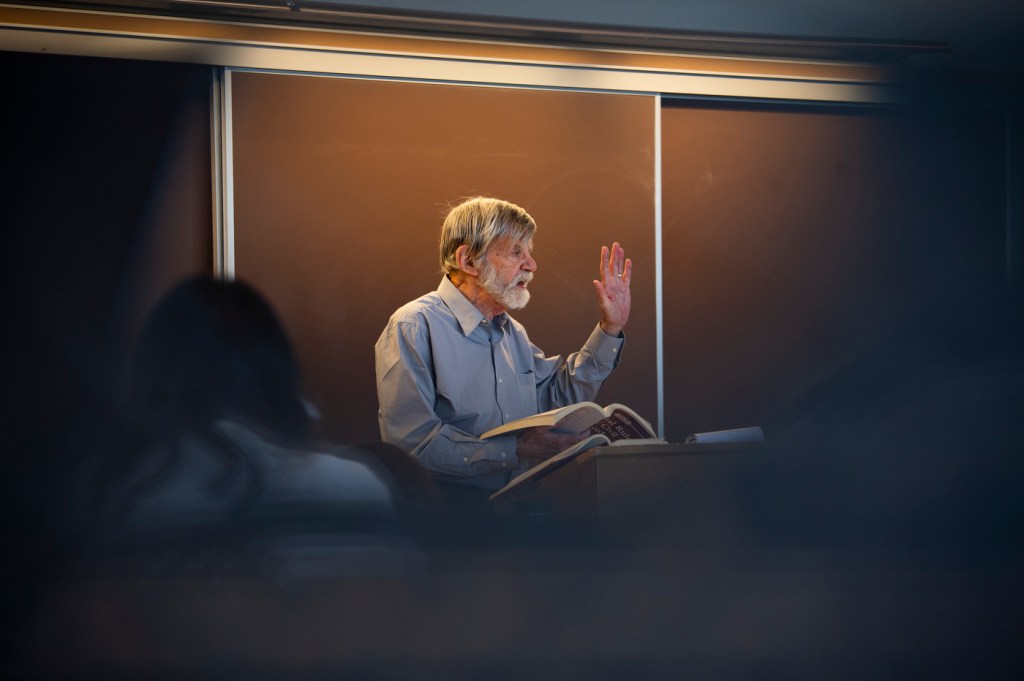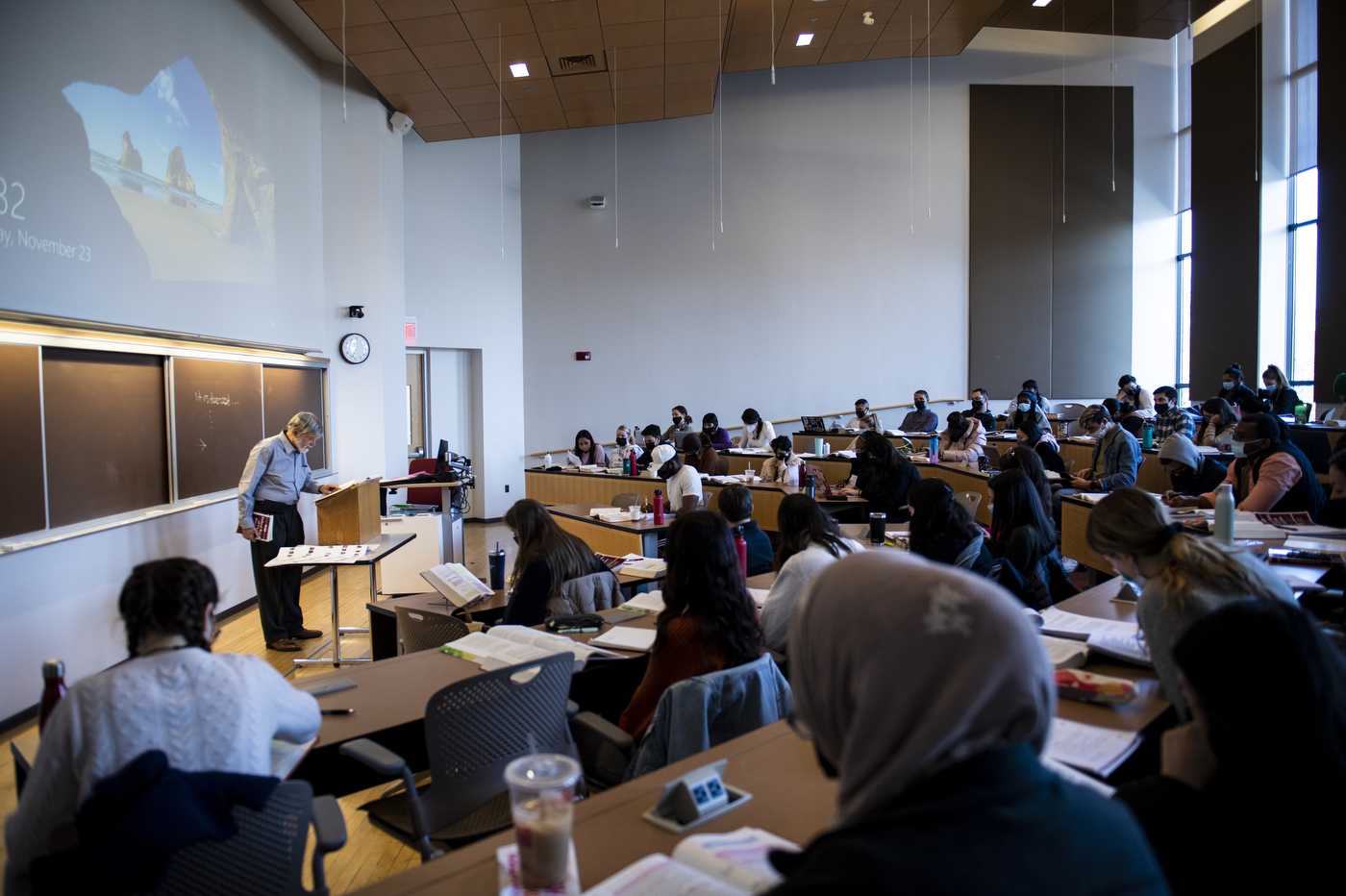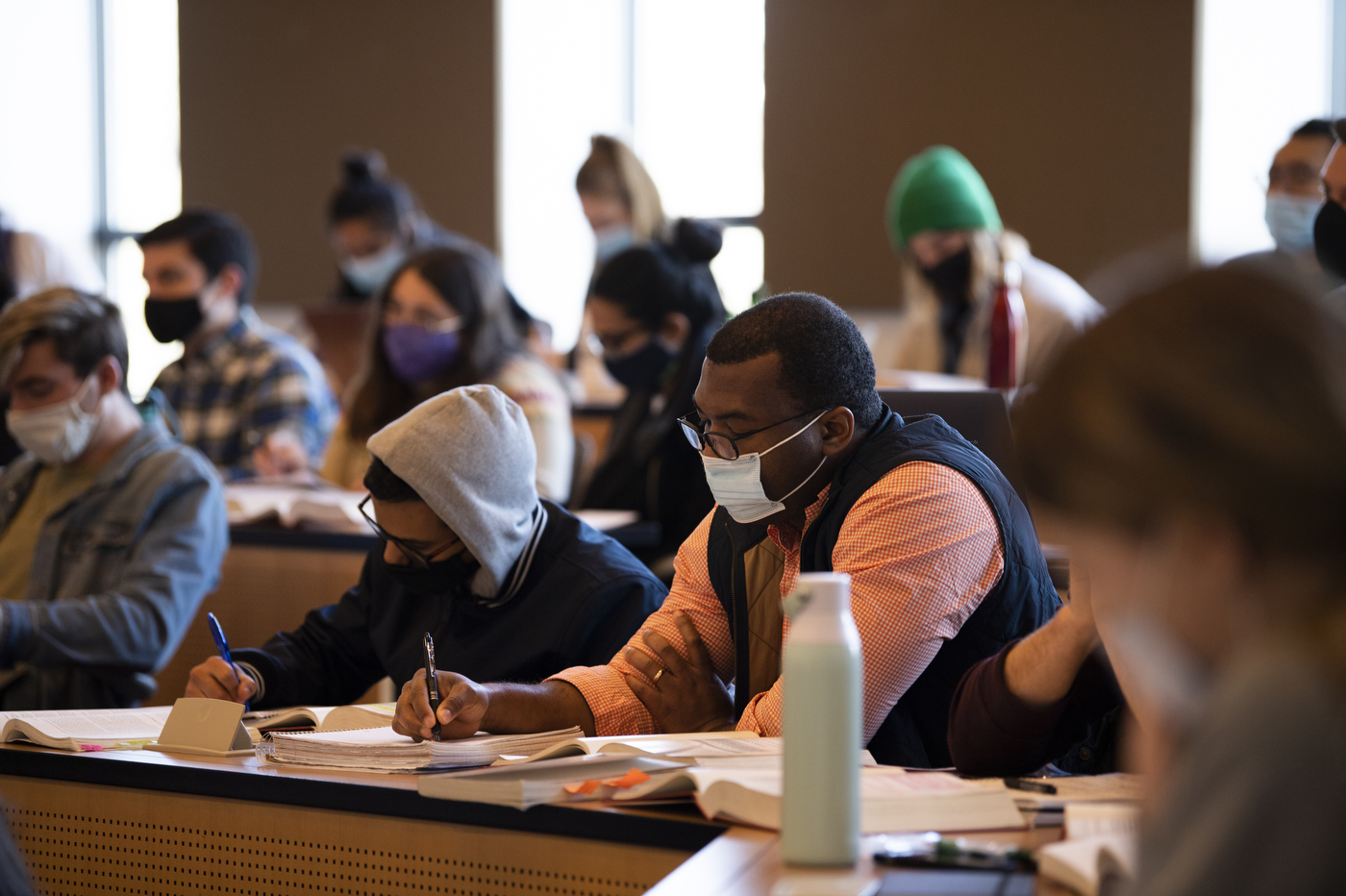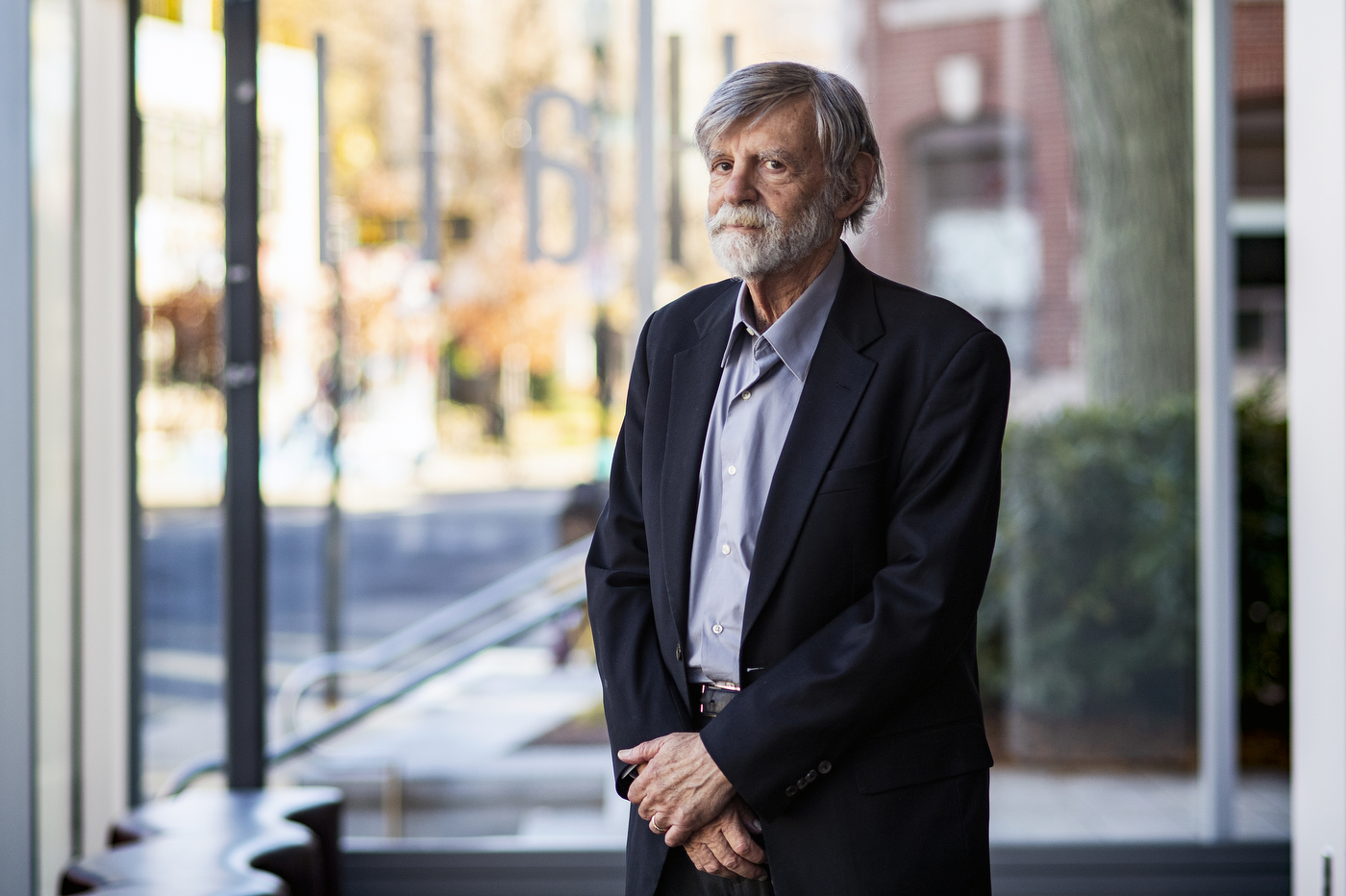Legal legend fights to outlaw tobacco as he celebrates 52 years at Northeastern

Richard Daynard doesn’t do retirement.
The Northeastern law professor—who took on big tobacco at the height of its political influence and won—will be the first to tell you he’s not the type to sit back and work on his golf swing. Just as quickly, he’ll remind you that it’s been 52 years, not 50, since he joined Northeastern.
“For me, being alive means learning, it means being involved,” says Daynard, who started teaching at the Northeastern University School of Law when he was 25 years old and is now head of the Public Health Advocacy Institute. The university used bells to signal the end of class and the Boston campus was little more than a few buildings with a gravel parking lot, Daynard says.


Daynard’s impact shines throughout the university and the legal community, from the law school’s focus on public interest law to grateful students like Mary Bonauto, a LGBTQ advocate who said Daynard’s tenacious spirit helped her as she fought to establish the right of same sex couples to marry nationwide.
Daynard’s seminal work helped establish the legal responsibility of the tobacco industry for cases of tobacco-induced addiction, disease and death—but his ongoing fight against the industry is not the reason he refuses to retire.
“I’ve had a long career and I’ve done a lot. The principal reason I don’t do retirement, and therefore will presumably never have a retirement party, is because I love teaching,” Daynard says, pointing to the fresh perspectives his students bring to class.

Northeastern University Distinguished Professor of Law and President of the Public Health Advocacy Institute, Richard Daynard poses for a portrait . Photo by Alyssa Stone/Northeastern University
That role as teacher became key to Daynard’s relationship with President Joseph E. Aoun, who joined a gathering of Daynard’s family, friends and colleagues to celebrate the law professor’s many contributions to Northeastern’s School of Law as well as his history-making public health litigation.
“He became my teacher,” said Aoun, who recounted his experience meeting the passionate lawyer in 2006 when he first joined Northeastern as president. “He started explaining to me about the essence of Northeastern and what it represents, and that was a transformative moment for me.” Aoun spoke of appreciating Daynard’s counsel over the years, and their mutual appreciation for identifying issues and working together to solve them.
Daynard‘s drive to change society for the better is bolstered by the same love of action and involvement that keeps him from retiring, says James Hackney, dean of Northeastern’s School of Law.
“I think his most valuable lesson is, if you believe in a cause or a mission, then you should really think about it, strategize, and execute,” says Hackney. “That’s the great thing about Dick. “It‘s not just a vision and a thought, it‘s actually how do you get there, step by step.”
The celebration included legal revolutionaries like Bonauto, a former student who led the fight to legalize same sex marriage, and iconic public health leaders like medicine historian Allan M. Brandt. Both pointed to Daynard as a key influence in their lives.
“He is such a remarkable advocate and activist,” said Brandt, who offered key testimony in the U.S. Department of Justice’s 2006 case against tobacco giant Philip Morris. “He took on the most powerful interests just by himself and saved hundreds of millions of lives. His influence goes to every corner of the world where children won’t be smokers.”
“I just had a realization that something was wrong”
Daynard took issue with tobacco at a young age.
The native New Yorker was a pre-teen living near Central Park West, and he’d embraced amateur radio as a hobby. Also called ham radio, enthusiasts could communicate with others around the world with nothing but a few pieces of equipment.
“I had my little transmitter and receiver and antenna on my terrace. I would talk to people, I think it was in over 100 countries,” said Daynard. It was during an in-person ham radio club meeting on the Upper East Side when he felt the first pangs of tobacco resentment.
The air at the meeting was thick with cigarette smoke, Daynard recalls, and there was an expectation that non-smokers should adjust to the acrid atmosphere.
“I just had a realization that there was something wrong,” said Daynard. “I’d have to go outside if I wanted some fresh air, and it seemed like they should be the ones to stop. I’m not the one who needs to figure out how to protect myself, here.”
It was a precursor of what was to come for the public health advocate, who has never minded bucking societal expectations for the right cause.
“People seem to think that if something doesn’t work or hasn’t been tried, it’s because it can’t possibly be done. And my mind just doesn’t work that way,” said Daynard.
He heard the same refrain in the 1980s when he set out to hold tobacco companies legally accountable for the health effects of their products. Tobacco interests sought to defuse the impassioned Daynard. A spokesman for the now-defunct Tobacco Institute in Washington, D.C., called him “not terribly inventive; a Johnny one note,” in a 1988 New York Times article.
Brandt, a public health scholar who was just starting a book about the tobacco industry called “The Cigarette Century” when he first met Daynard, had little faith in his success.
“I met with him, and I was a bit of a snotty kid and I said, ‘I don’t think you’ll ever win, and here’s why,’” said Brandt, pointing out that the nation prized individual responsibility. “Dick, more than anyone else, said, ‘I will not abide by that argument.’”
Apparently, Daynard’s one-note worked. By the year 2000, tobacco industries had agreed to pay $206 billion to 46 states who sued, and stopped using marketing targeted to teens and children.
“We wanted to… make the world a better place”
That same force of will informed Daynard’s role at the university. With degrees in philosophy and urban planning as well as law, Daynard was one of many professors who agreed to teach at Northeastern because the recently reopened law school focused on public interest law and social justice.
It was a unique area of study at a time when law schools largely taught corporate law and graduates expected to work for Wall Street behemoths.
“We wanted to work at a school where we’re concerned and students are concerned with making the world a better place,” Daynard said.
No issue was too large or too small for Daynard, if he felt change was necessary. After touring the Boston campus with his daughter more than 20 years ago, Daynard lobbied to update the dormitories. When Daynard led the senate faculty from 2012 to 2015, he wasn’t interested in taking sides as much as he wanted to determine what was best for the university, said President Aoun.
“It wasn’t easy at some points, but he always looked at it as justice, and what we should do because that’s the right thing to do,” Aoun said.
Daynard still teaches on campus several days a week, and has no plans to change that any time soon. He continues his work against tobacco, as well, creating something he calls the tobacco free generation.
“It’s a policy that says anybody born after a particular date can never be sold tobacco products,” says Daynard, noting that New Zealand recently did exactly this, enacting a ban on tobacco sales to anyone 14 years old and younger. The age ban increases every year, so that eventually tobacco sales will be illegal for everyone.
“It makes perfect sense,” says Daynard, who has already heard complaints arguing it’s impossible to ban tobacco sales.
“You ask any parent what age they want their kid to start smoking. Guess what their answer will be?”
For media inquiries, please contact media@northeastern.edu.





